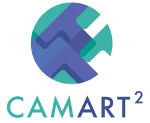CAMART2 timeline
An elaboration of the business plan of CAMART2 according to needs and demands of the national and Baltic Sea Region industry for R&D and technology transfer services in the field of advanced materials and technologies.
Phase 1: Elaboration of business plan. 01.06.2015 – 31.05.2016
Activities:
- Assessment of existing situation in the ISSP UL regarding Human resources, skills and infrastructure in the frame of the innovation related with the national RIS3 strategy (Acreo)
- Elaboration of roadmaps for human resources, organizational change, administrative support and infrastructure development (KTH)
- Development of business plan for CAMART2 according to needs and demands of the national and Baltic Sea Region industry for R&D and technology transfer services in the field of advanced materials and technologies (ISSP UL).
Funding - 497 500 EUR
Phase 2: 5-7 years
Establishment of the excellence centre CAMART2
Activities:
- Increase and prepare appropriate human resources, including bachelor's, master's, doctoral and postdoc activities in universities and ISSP UL;
- Develop technical expertise by staff and student training programs at KTH Electrum Laboratory and attracting highly qualified researchers from the project partner organizations and developing joint projects;
- Upgrade infrastructure using national and ERDF funding;
- Create Technology Transfer Centres as free access laboratories (Open Access Laboratories) in following fields:
- Thin films and coatings technologies;
- Electronic and photonic device prototyping.
- Develop the innovation system by using KTH and Acreo experience
- Implement research process control systems;
- Implement quality standards (such as ISO9000 / 9001);
- Establish a legal basis for successful integration projects with industry and spin-off companies;
- Achieve closer involvement in the European R & D & I networks
- Develop and implement marketing activities.
Possible funding:
- up to 15 million euros Horizon 2020
- 15 – 20 million euros from national, including ERDF, funding


